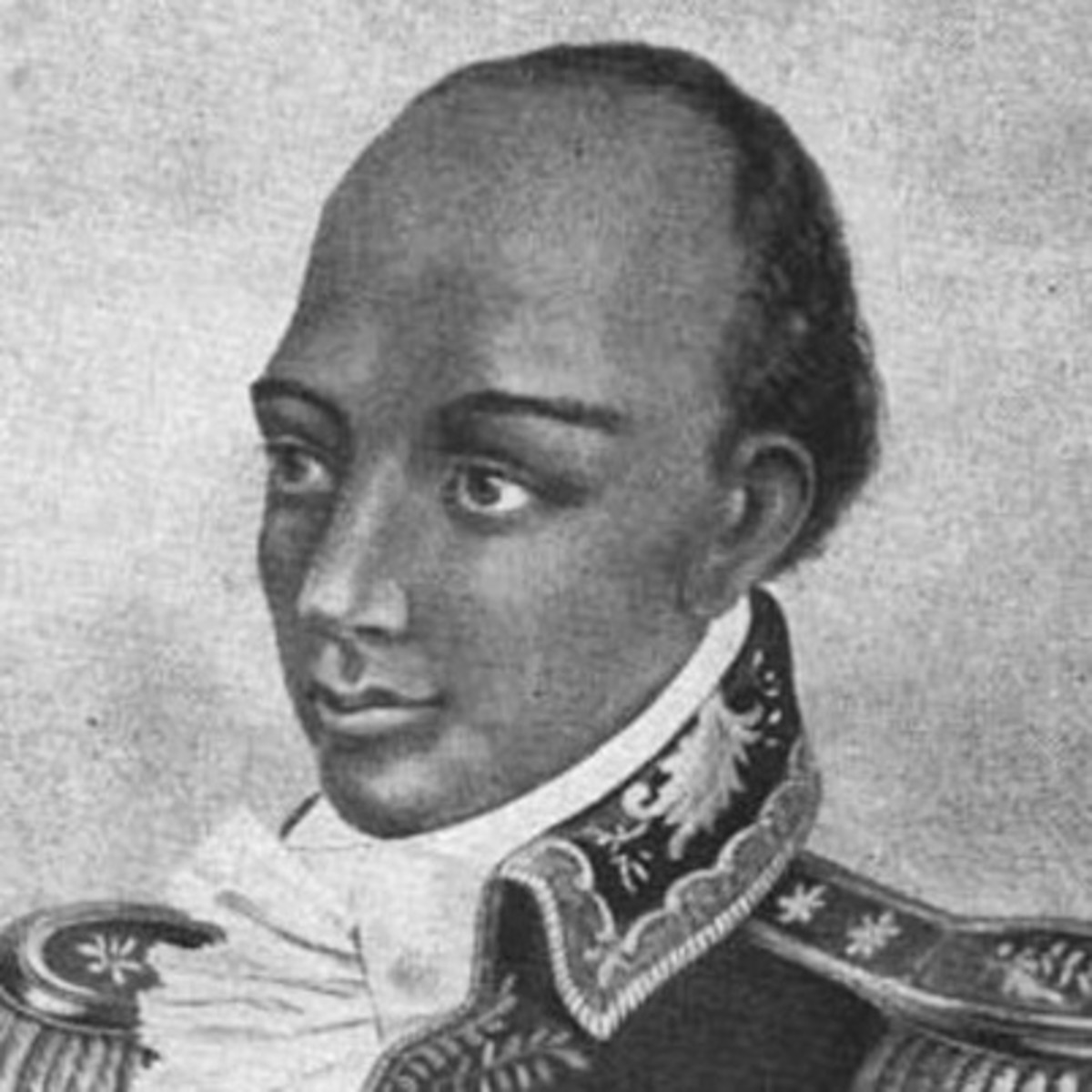THE FIRST AFRICAN LEADER IN THE WEST
Born a slave in 1744 on the Breda plantation in St. Dominique (present day Haiti), Toussaint L’Ouverture rose to become the first independent Black leader in the New World. Under his guidance, Haiti became the second independent nation in the Americas in 1804, joining the United States which was first.
The Haitian revolution began with a courageous slave named Boukman, who led a community of 12,000 other slaves to revolt in Le Cap in 1791. It ended victoriously, with Toussaint, who not only conquered the former French and Spanish slave owners, but also handed the British army what was, up to that time, its worst defeat ever. Toussaint and the freed slaves not only conquered Napoleon in Haiti, but also caused his defeat in Europe as well. His military genius destroyed army after army of Napoleon’s forces, sent by Napoleon to re-enslave the Blacks of the island. By constantly draining the natural and financial resources of the former French colony, (the riches in the world at that time), Toussaint’s army weakened Napoleon’s position in France, giving the British the opportunity needed to destroy Napoleon’s continental forces.
Toussaint, the eldest of eight children, was small for his age, but soon developed his strength and skills through swimming, running, horseback riding, reading and thinking. His quiet, reserved manner, his cautious but confident nature, and his sharp tongue gave him command of every situation. His father, once a chieftain in Africa, taught him history and medicine. His mother taught him songs and told him stories of his ancestry. Pierre Baptiste, his godfather and a wise man, taught him French, Latin, and geometry and instilled in him a deep faith in Christianity. An avid reader of philosophy as well as history, Toussaint gained insight and power from his studies.
His last name, L’Ouverture (the opening), was a nickname the French governor of St. Dominique (Haiti) gave him after engaging in a battle with Toussaint. The governor’s statement, “That man finds an opening everywhere,” testified to Toussaint’s ability to break through enemy lines.
After hearing the declaration of the French revolutionary leaders for liberty, justice and equality for all French citizens, Haiti decided to fight its own war for independence in 1791, and Toussaint, cautious at first, soon became its leader and defeated the French slave owners. After The National Convention abolished slavery in 1793, he aided the French in their war against the Spanish and the British. In 1799, civil war broke out between the Blacks and the Mulattos. Toussaint, leading the Blacks in this internal struggle, soon won the war and became the island’s sole ruler.
When Napoleon sought to re-enslave the Blacks of Haiti in 1802, Toussaint began planning for war. He fought bravely and won many battles but was deceived by diplomacy to make peace. At peace the talks he was kidnapped and brought to France where he was imprisoned by Napoleon until his death on April 7th, 1803. Ironically, Napoleon would suffer a similar fate: capture and imprisonment until death. Under the leadership of Dessalines and Christophe, two protégés of Toussaint, Haiti maintained its independence, and was never again enslaved.
Character, training, action and a deep faith in God granted Toussaint command of the challenge of leading his people to freedom. The intellect, the curiosity, and the sense of community created through the sharing of history, coupled with the dream of freedom, justice and equality were the stamp and character of Toussaint L’Ouverture and the Haitian people.
To learn more about this brilliant leader, and the revolution he and others led, read one of the most comprehensive studies on this subject – The Black Jacobins: Toussaint L’Ouverture and the San Domingo Revolution, by the Caribbean born scholar, C.L.R. James.

